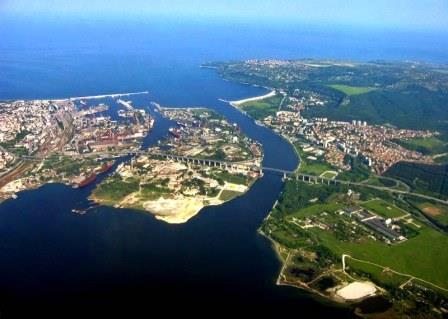
ECMS 2015
 Technical
University
of Sofia, Bulgaria
Technical
University
of Sofia, Bulgaria
local pages:
http://fa.tu-sofia.bg/te/ECMS2015/
May 26th
- 29th, 2015
Albena (Varna),
Bulgaria
Finance and Economics and Social Science (FES)
combined with Policy Modelling



4.jpg)
7.jpg)
9.jpg)
The description for the PM-topics can be find at the end of FES description
The broad area of finance, economics and other social sciences is addressed by this track with the aim of exchanging state-of-the-art methods, techniques and models among the leading scholars of the field.
Topics include (but are not limited to) new developments
in the areas of:
Finance:
-
Investment banking
-
Risk management (VaR) and Risk Management Software
-
Automated trading systems
-
Corporate strategic planning
-
Securities trading and financial risk management
-
Investment management
-
Derivatives and financial assets valuation
-
Herding in Financial Markets
-
Behavioural Finance
-
E-Finance & E-trade
-
Public policy, population economics, environmental economics, health economics, mobility
-
Fiscal and monetary policy, demand/supply relationships, GBP, interest rates, exchanges rates
-
Project management
-
Agent-Based Computational Economics
-
Social and Economics Neural Networks
Artificial Economics
Social science:
-
Social simulation
-
Opinion dynamics
-
Game theory and behavioural sciences
-
Social and cultural dynamics
-
Social networks
Agent-based
modelling
Policy Modelling topics
The 1960s and 1970s saw some first modelling and simulation attempts at advising policy makers. Half a century later it is the time to review
the
current state of affairs in computer-assisted, simulation-based
policy
modelling. This new track offers researchers an opportunity to
submit
papers in a wide variety of application areas and from a wide
variety of
simulation approaches, among them:
-
system dynamics for forecasting and for foreseeing alternative futures microsimulation for forecasting national and regional demographic developments
-
participatory modelling and simulation in environmental management, land use change, urban development and other areas
-
supporting political decision making with scenario building
-
designing the whole cycle of policy analysis, modelling and simulation with integrated tools for stakeholder involvement
-
supporting the transformation and coding of natural language texts and conceptual models into formal simulation models
-
visualizing conceptual models and simulation results of complex policy contexts to stakeholders
Page
created by M.-M. Seidel
© Copyright ECMS - All Rights Reserved
